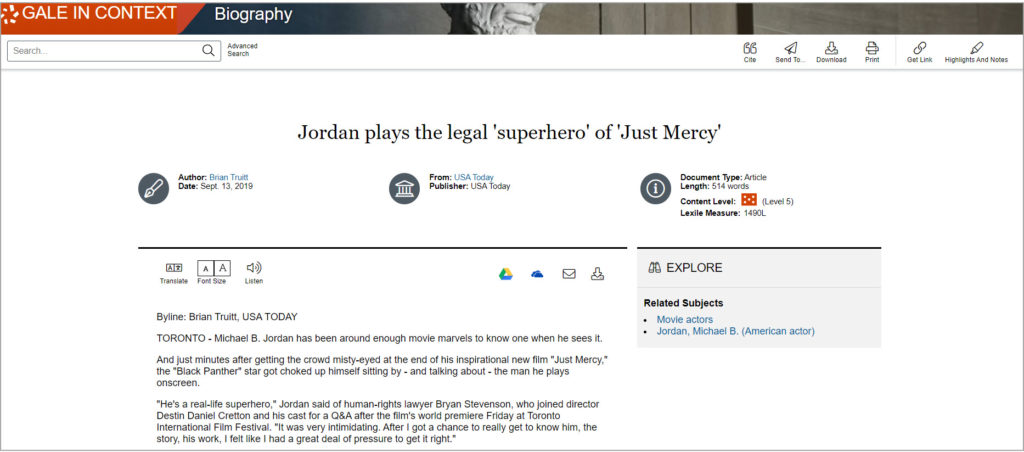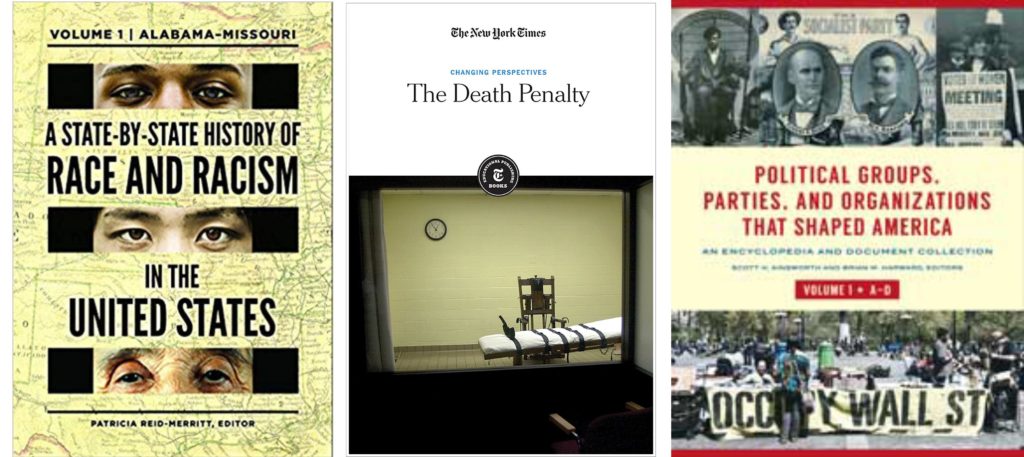| By Andrea Drouillard |
The movie Just Mercy tells the story of attorney Bryan Stevenson, who has made it his mission to help poor and vulnerable people who have been sentenced to death. While watching it, I couldn’t help but draw parallels to some of the quotes of Dr. Martin Luther King, Jr. In particular, “We must accept finite disappointment, but never lose infinite hope,” which is from In My Own Words, a collection of King’s sermons, speeches, and writings selected by Coretta Scott King. Despite numerous setbacks, Stevenson exemplified infinite hope in his pursuit of justice. According to the Equal Justice Initiative, which was founded by Stevenson, for every nine people executed, one person on death row has been exonerated.1 He himself has prevented the deaths of 115 male prisoners, many of whom were innocent and inadequately represented.2
The movie shines a light on many important topics, including social justice, post-traumatic stress disorder (PTSD), and childhood trauma. At the end of the movie, I sat silently, still processing. The woman next to me told me that she had seen Bryan Stevenson speak at a conference several years ago, and she still considers that conference the best one she ever attended. Come to find out she’d recently retired after 30 years as a public librarian and was referring to the 2014 Public Library Association (PLA) conference. She went on to tell me about an amazing TED Talk by Bryan Stevenson. He spoke about how we need to talk about racial injustice and shared staggering statistics, including one that I can’t shake: One out of three black men between the ages of 18 and 30 is in jail, in prison, or on probation or parole.3
That statistic took me back to the end of the movie when Michael B. Jordan as Stevenson said, “The true measure of our character is how we treat the poor, the disfavored, the accused, the incarcerated, and the condemned.”

The experience of watching Just Mercy and listening to Stevenson’s TED Talk led me to reflect upon the Urban Libraries Council Statement on Race and Social Equity; it serves as a baseline upon which libraries can build policies and programs to make their communities become more inclusive and just. Schools across the country have included Just Mercy on their summer reading lists and/or are encouraging their students to read the book. Random House offers a Just Mercy movie tie-in teacher’s guide, and Kingsborough Community College offers a fantastic teacher toolbox. There are many interesting and creative ideas online, created by groups such as Teachers Pay Teachers and Pinterest, where you can find lesson plans, discussion questions, research projects, and book studies—and we at Gale will also continue to expand our Diversity, Equity, Inclusion, and Justice collection.
Contact your Gale consultant for content related to the topics covered in Just Mercy or for information on the Just Mercy eBook Collection, which includes titles such as:

Related Topics in Gale In Context: Opposing Viewpoints:
1. Death Penalty, Equal Justice Initiative (website), accessed January 28, 2020.
2. “Bryan Stevenson,” Gale In Context: Biography, December 11, 2015.
3. Stevenson, Bryan. “We Need to Talk about an Injustice.” Filmed March 2012. TED video, 5:31.

Meet the Author
Andrea Drouillard is a sales director for K‒12 and public library markets at Gale. She’s a mom, music lover, lipstick hoarder, gardener, and street art enthusiast who is always happiest by the water.

